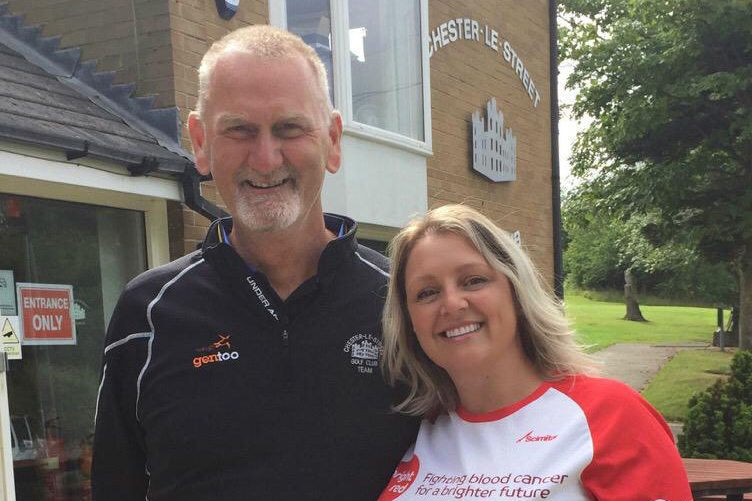PART ONE:
Then, I was diagnosed with acute myeloid leukaemia. It came as a shock to me; I only went into hospital because I had two small cuts that weren’t healing.
I remember the day clearly. It was a Tuesday morning that the doctors took my blood and by that afternoon I returned as something was not right. My red blood count was okay. Then my wife asked them about my white cell count – the results seemed slightly off. They made arrangements with haematology and said they would get back to me in the next year. When I got home that same day the phone was ringing. It was the doctor’s surgery again, asking if I could go straight to hospital and take an overnight bag with me.
The alarm bells started to ring. We still had absolutely no idea what was wrong. I arrived at the hospital Tuesday night: this was the last time I was home for about eight weeks.
You don’t get any time to prepare. Your life suddenly with a flick of a switch changes. Life was thrown into total chaos: “I’ve got to phone there to let them know this, what am I going to do with the house, who is going to walk the dogs three times a day.” Fortunately, we had some superb support from friends and family. It was a great relief to have them because you don’t know what to do in that situation.
Treatment
The first series of treatment was intense. I had eight months of chemotherapy. September 2013, I was given the all clear. Every time you go to the hospital it gets less and less until I was leading somewhat of a normal life again. You always have in the back of your mind that things could turn around.
Many people shout from the rooftops that they have beaten cancer. Well, I’m not one of them. I don’t want to jinx it because it tends to come back and bite you.
In 2016, I had ongoing monthly blood checks. My readings were clear, except for my haemoglobin and my platelets; they started to drop again. They dropped to a level where a bone marrow biopsy was required. I knew it was bad news. It was confirmed that the leukaemia returned.
Then it was decided that the only way forward was a stem cell transplant. I had a donor from Florida. I was all ready, when suddenly it was cancelled the day before. This was due to the Zika virus. Zika could stay dormant in the person for six months. There was no way to check. I definitely wasn’t going to take a chance and potentially bring Zika into Europe. The realisation that I lost a donor came to my mind. I started panicking – what am I going to do now.
Thankfully there was a new treatment where one of your children donates stem cells. That’s what we ended up doing; my son went through the process. I didn’t know what to expect. I had chemotherapy and full-body radiotherapy before the transplant, which again was horrendous. I was released about four weeks after my transplant. Within an hour of getting home. I was back in the hospital.
Things went downhill rapidly and I ended up in ITU on life support. My family made their farewells and were told to expect bad news. I didn’t know anything about it; I was sedated. I was fortunate that somebody at the pearly gates decided to send me back for a bit longer and I was eventually released from hospital.
I can’t even begin to think how stressful it would be for my family. I wasn’t aware of what was happening on a daily basis and still to this day I have no idea.
I have absolute admiration for everybody on ward 33. Everyone was fabulous, I would speak with a doctor or nurse, and instantly be put at ease.
We made a conscious decision when I came out of treatment, and I said “Look I’m still here, we need to live for each day”. It does change your plan for the future, but my future is not guaranteed. The wheels came off our best laid plans. We said let’s live for the day and we’ll see where that takes us.
Even though I’m three years down the line from a transplant, you still don’t know what lies ahead. If you dwell on that, it’ll drive you down. We have to stay positive.

